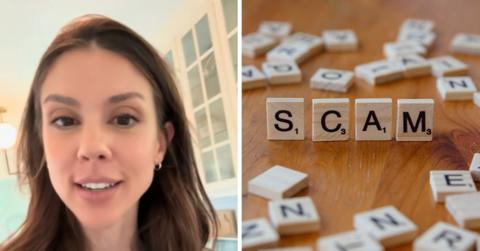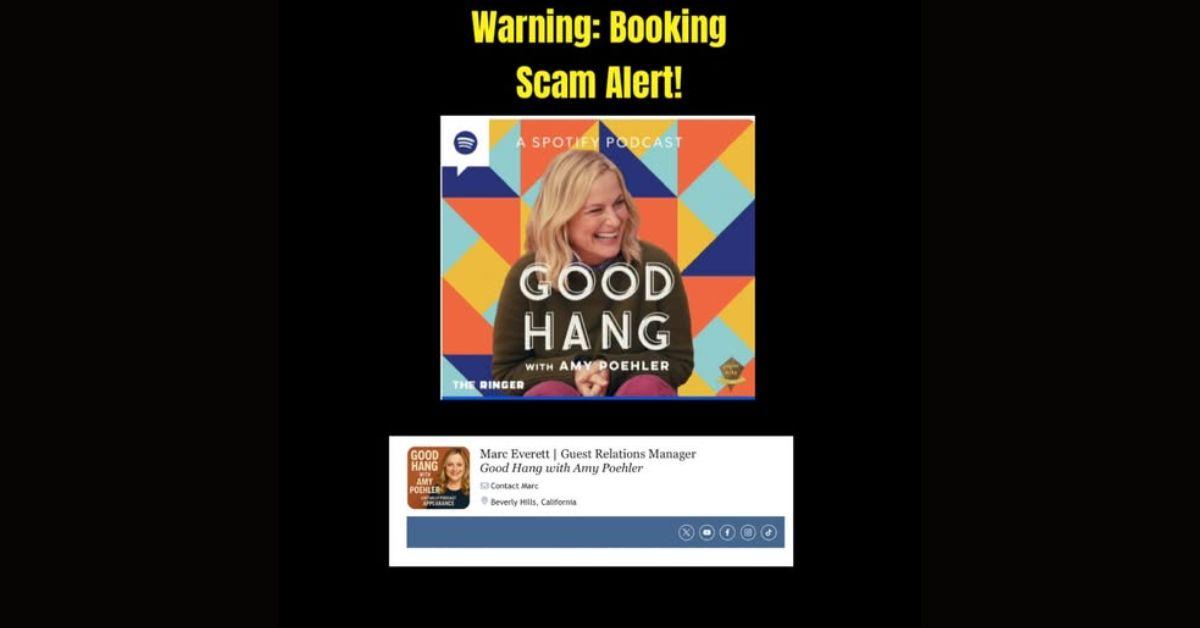What Is the Amy Poehler Podcast Scam? Creators Warn Others After Fake Invites
"None of us saw this coming. This is so strange."
Published Sept. 24 2025, 11:36 a.m. ET
Podcasts have exploded in popularity, becoming a major way for creators, celebrities, and thought leaders to connect with audiences. For up-and-coming influencers, scoring an invite to appear on a major show can feel like hitting the jackpot.
That was exactly the thrill actor and TikTok user Kate Mansi felt when she received what looked like a legitimate invitation to join Amy Poehler’s podcast. But instead of a career milestone, she quickly realized she’d stumbled into something far more concerning.
So what is the Amy Poehler podcast scam, and why are so many creators talking about it?
What is the Amy Poehler podcast scam?
According to Kate, she was invited to appear on Good Hang With Amy Poehler, which is the comedian’s official YouTube-based podcast. The invite used real logos, professional formatting, and even included links that looked authentic.
Wanting to be thorough, Kate asked for a pre-call before committing. That’s when the red flags appeared, and she realized it wasn’t Amy’s team at all. It was a scam.
She said her publicist and team had questions but had no idea it was a scam: "None of us saw this coming. This is so strange."
The scam mirrors a growing trend targeting creators who dream of landing big-name podcast features. By using well-known shows like Amy’s, scammers create a sense of legitimacy, hoping victims will share personal data or even grant access to their social media accounts.
Kate’s caution prevented things from going further, but not everyone is so lucky.
Other creators have reported similar podcast scams.
Unfortunately, Kate isn’t the only one who has run into this scheme.
Author Pete Wharmby shared on Facebook that he received a suspicious invite to Amy Poehler’s podcast as well, noting how convincing the emails looked. He said, "In case you're wondering, the idea behind the scam is to eventually secure a 'tech check' Zoom call with the scammer where they ask you to share your screen and then, via various methods, they gain access to your Meta account."
The Sourdough Journey Facebook page also posted a warning about what they described as “an elaborate podcast booking scam” circulating across social media.
The same scam was shared by Benty Cakes. She posted on Facebook, "I mean — why wouldn’t @amypoehler want to hang with me??It just made sense … until I actually thought about it. He probably wanted to get my account number to 'pay me' or get me to download something on my computer. We are on to you!"
Videos shared by other creators echo the same story: professional-looking invitations, logos that appear official, and fake booking agents pushing for quick responses.
As Inc. Magazine points out, these scams rely on creators’ excitement and eagerness to grow their platform, hoping they’ll let their guard down. The scam isn’t limited to Amy’s show; it’s part of a larger wave of phishing attempts targeting influencers and authors across industries.
Here's how to protect yourself from podcast booking scams.
While the Amy Poehler podcast scam is making headlines, the lessons apply to anyone receiving unexpected invitations from anywhere.
Before agreeing to anything, take time to research. Look up the podcast’s official website or social channels and see if the staff member contacting you is listed. Double-check the sender’s email address, since scammers often use lookalike domains.
Pay attention to spelling and grammar errors, which are often a giveaway.
Never share sensitive information like passwords, social media access, or financial details.
If you’re still uncertain, ask for a phone call or a pre-call like Kate did. A real team will understand the need for reassurance. And most importantly, never allow anyone to share your screen or control your device during a video chat.
Having two-factor authentication and recovery emails set up on any online account when possible are also a very important safeguards against scams.
These podcast scams highlight how phishing tactics evolve with trends in media. Podcasts are booming, and scammers know the promise of exposure is a powerful lure.
Staying cautious, doing a little research, and trusting your instincts can go a long way in keeping your personal and professional life safe while you chase your big break.

